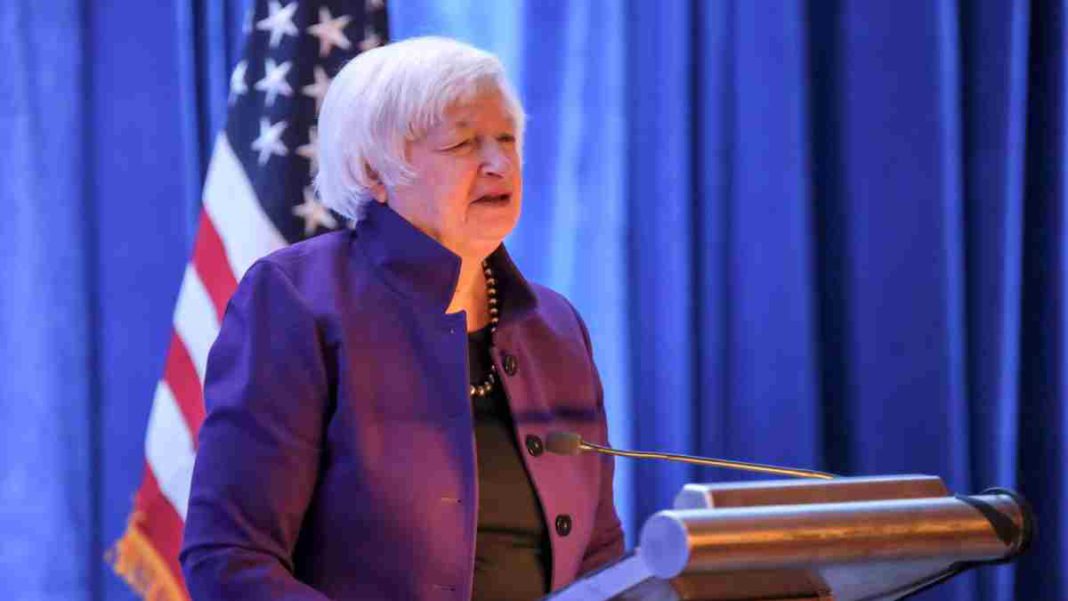UNITED STATES: Janet Yellen, a U.S. Treasury Secretary, warned on Tuesday that the failure of Congress to extend the government’s debt ceiling and the ensuing default would result in an “economic catastrophe” and hike interest rates for years to come.
In prepared remarks for a Washington event with California business leaders, Yellen said that a default on the nation’s debt would cause job losses while also raising household payments for mortgages, auto loans, and credit cards.
She stated that raising or suspending the $31.4 trillion borrowing cap was Congress’ “basic responsibility” and cautioned that a default would jeopardise the economic gains the US has gained since the COVID-19 pandemic.
“A default on our debt would produce an economic and financial catastrophe. A default would raise the cost of borrowing in perpetuity. Future investments would become substantially more costly,” Yellen said to Sacramento Metropolitan Chamber of Commerce members.
She added that if the debt ceiling is not lifted, American businesses will see deteriorating credit markets, and the government will probably not be able to pay military families and the elderly who depend on Social Security.
“Congress must vote to raise or suspend the debt limit. It should do so without conditions. And it should not wait until the last minute,” she continued.
Yellen informed lawmakers in January that the government could only meet its debt obligations through early June without raising the ceiling, which it did in January.
In contrast to the majority of other industrialised nations, the United States has a strict cap on the amount it can borrow. Lawmakers must re-raise the debt ceiling from time to time because the government spends more than it collects.
Kevin McCarthy, the speaker of the House of Representatives under Republican rule, unveiled a proposal last week that would combine $4.5 trillion in spending cuts with a $1.5 trillion rise in the debt ceiling. He said the proposal would serve as the framework for negotiations in the weeks to come.
The Democratic-controlled Senate is certain to reject the proposal, and the White House believes the two topics shouldn’t be related.
Financial markets are sprouting increasingly worried about the standoff, driving the cost of insuring frontage on U.S. debt to its loftiest level in a decade, and financial professionals are cautioning about the rising possibility of default.
Also Read: Sri Lanka Debt: India, Japan and France to Announces the Common Platform



